Discipline and practice
With close to 15 years of experience in the healthcare sector as a Legal and Compliance counsel, Jayanthi Ravi, Assistant Director, Legal, at the Singapore Translational Cancer Consortium (STCC), oversees the finer details of contracts and framework agreements to facilitate successful public-private partnerships that advance oncology research in Singapore.
Unknown to many, Jayanthi is also trained in Bharatanatyam, a classical Indian dance.
Read on to find out how the discipline, precision and creative interpretation required to master this classical Indian dance parallels her work in legal and compliance.
Of quick footwork and clear footnotes
On Monday evenings, Jayanthi would attend classical Indian dance classes. “It creates a positive vibe and lets you expend your energy, and it’s a great way to begin the week,” she says. A trained classical Indian dancer, Jayanthi began Bharatanatyam dance lessons when she was ten and trained intensively for eight years before she went on to pursue Law in university.
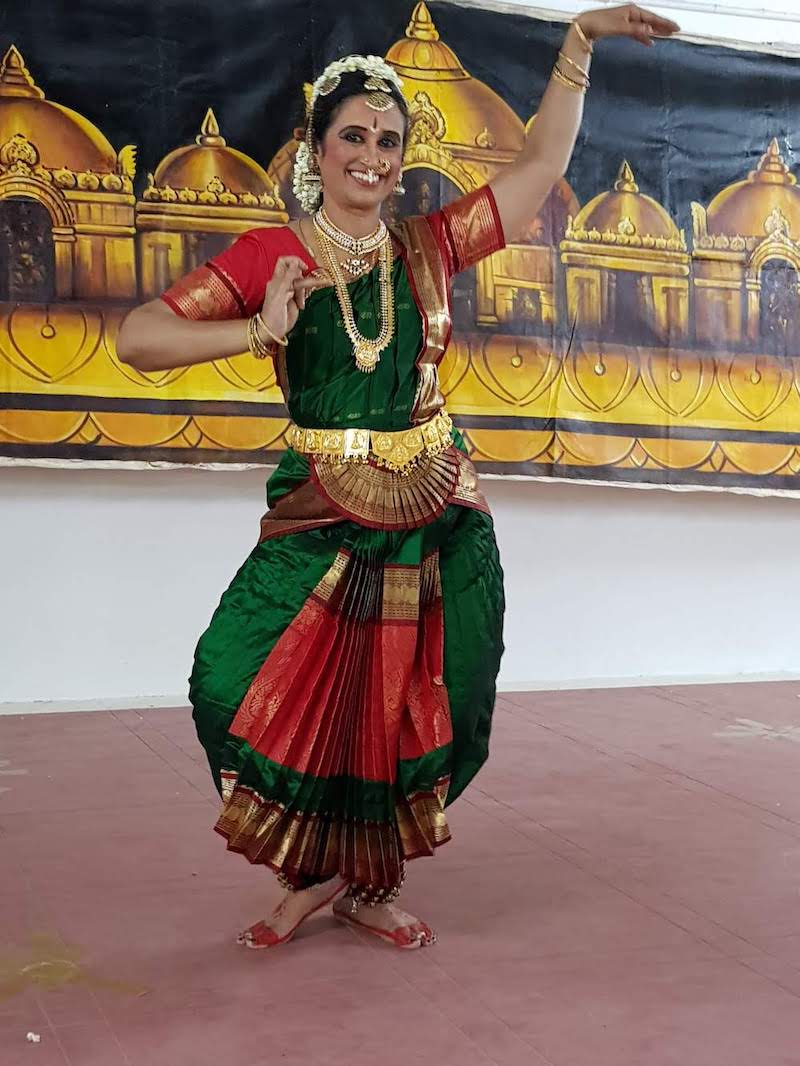 Jayanthi attends weekly dance classes and participates in performances by the dance school whenever she can.
Jayanthi attends weekly dance classes and participates in performances by the dance school whenever she can.
She enjoys how the fast, intricate footwork and the rhythmic patterns formed by precise hand gestures and facial expressions come together to tell a story. These movements showcase a dancer’s technical abilities honed through years of discipline, which blend into fluid movements to form a beautiful expression of grace.
Combining the precision of Bharatanatyam with the rigours of legal work, it is no wonder that Jayanthi has a good grasp of both cultural nuances and clear guidelines which she applies in her profession.
As an in-house counsel for STCC, Jayanthi supports the nationally coordinated consortium to synergise cancer research and translational capabilities across Singapore. One of STCC’s aims is to advance global research and translational competitiveness by establishing collaborative cancer research programmes originating from the Singapore cancer research community.
Jayanthi is from the Business Intelligence and Development unit which serves as STCC’s front-facing arm to drive industry engagements and provides a single point of contact between industry partners and public healthcare partners keen on cancer-related clinical and research collaborations in Singapore. Together with STCC’s other platforms, they strive towards STCC’s core mission to establish Singapore as a global leader for selected Asian cancers by providing the cancer community and wider industry with an enabling research and innovative environment.
Although STCC was established in 2020 in the middle of the pandemic, the team has already made significant headway in synergising cancer research and translational capabilities across Singapore. These include launching Project PRECISION with Roche, partnering MiRXES on Project CADENCE, and embarking on an early-phase study with Adagene and Bristol Myers Squibb.
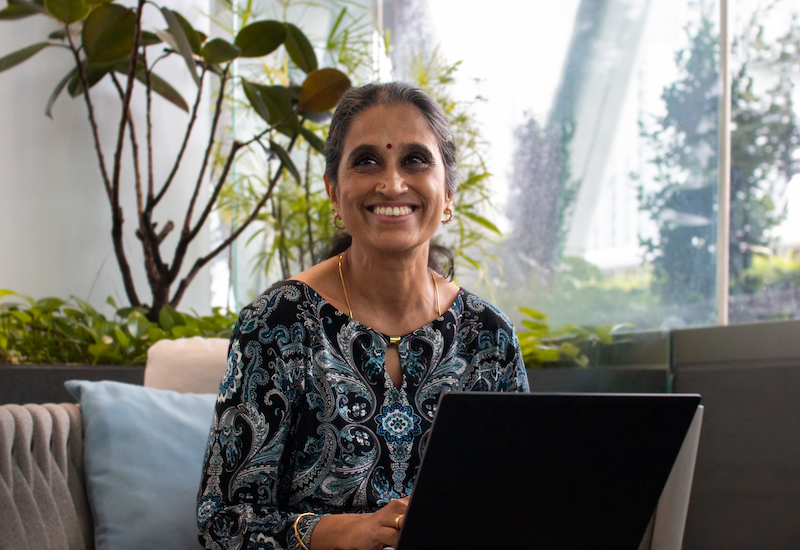
For Jayanthi, she supports the projects handled by STCC’s Cancer Clinical Trials and Investigational Medicine Units platform as well as its Cancer Database and Tissue Banks platform.
The former brings together several excellent clinical trial centres in Singapore for scaled-up expertise, capacity and efficiency in conducting cancer clinical trials, which increases Singapore’s standing and competitiveness as a major cancer clinical trial site for high-impact studies. Jayanthi provides her expertise to review framework agreements and provide legal advice, which will also overall contribute to support the oncology clinical research community.
The latter platform aims to combine existing databases of tissue repositories from the public healthcare institutions and align with the Singapore Network of Biorepositories to serve as a national resource platform that grants researchers access to annotated clinical data including specimen type and omics.
Jayanthi lends her legal expertise to ensure that robust governance framework is in place to uphold patient data privacy, protection and security so that data is shared in a safe, efficient, and ethical manner.
A lighthouse for corporate safety
Prior to joining STCC, Jayanthi has had a wealth of experience in the private sector, where she oversaw employment and corporate law at a German pharmaceutical MNC, and led the compliance and ethics function. She also spent time as senior legal counsel in an American clinical research organisation which conducts late-stage clinical trials where she had regional responsibility.
Having served as an in-house counsel for various companies throughout her career, Jayanthi likens her role to that of a lighthouse.
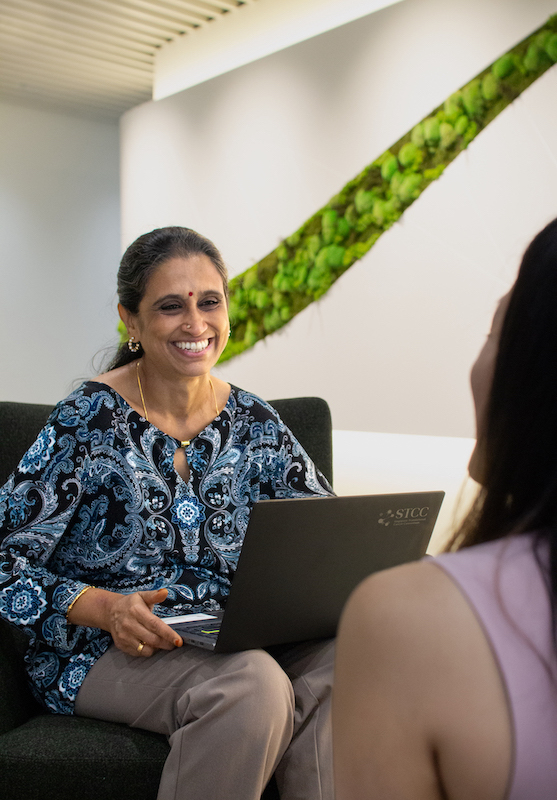
“Like how a lighthouse keep ships safe while they are out at sea, the role of a legal counsel is to proactively regulate to ensure that legal ‘accidents’ can be avoided or mitigated, as well as to provide guidance to stakeholders on the right way of doing things,” she explains.
One example to illustrate this would be that while seeking out “win-win situations for stakeholders” there may be concerns about the lengthy legal review process in some cases. Jayanthi explains the rationale that “though the legal fraternity does strive to shorten these by standardising where possible, legal review from all perspectives are necessary and terms in the contract are there to ensure clarity on the rights and responsibilities of each party and to mitigate legal risks”.
Jayanthi shares that this is not to stop or slow down processes, but instead, “we apply speed brakes where appropriate, to ensure that all terms and conditions are fair and reasonable”. We need to engage with and educate stakeholders that these are to protect the company from potential legal risks.
Moving from the private sector to STCC, Jayanthi added that she has gained a new perspective on her work: “The KPI of public organisations such as STCC are different from those of private organisations. Here, we focus on forging partnerships and collaborations aimed towards expanding Singapore’s oncology research ecosystem so that more ground-breaking research can take place here.”
For instance, Jayanthi is working on a standardised legal template agreement which can increase the efficiency and reduce efforts of inter- institutional contracting for local oncology centres to conduct oncology trials here. Currently, companies have to sign separate agreements with each centre, which can be time-consuming and cost-prohibitive, especially for smaller companies. A standardised template would reduce the time and legal costs needed to draft contracts from scratch, and trials can begin sooner here.
“We hope that the template can reduce contracting time and we are able to provide a more competitive space for Singapore to support such oncology trials,” says Jayanthi.
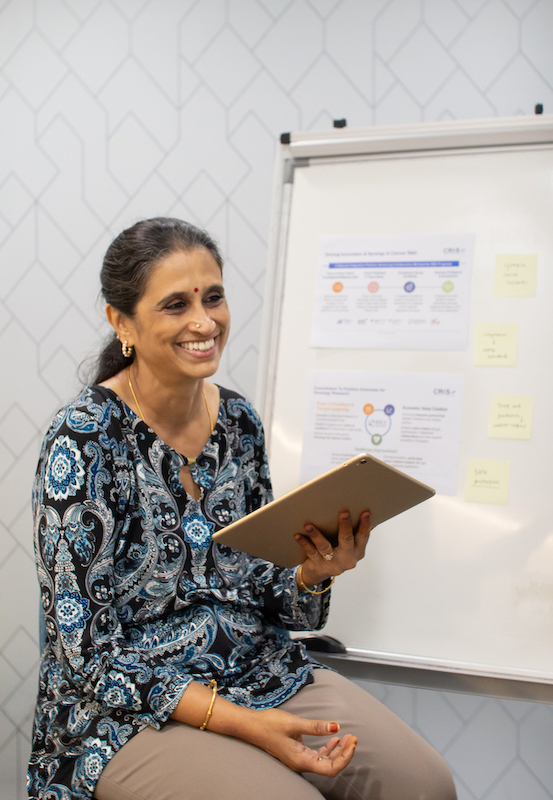
She adds that finds her work meaningful because it is no longer about revenue goals but something much larger to support the healthcare research ecosystem, and she is glad that she can contribute to the industry with her skillsets.
“What we are trying to do at the STCC is significant for the research community, and although what I offer is just a small piece of the puzzle, it is instrumental in establishing a strong foundation which in the long run, will help patients in Singapore and beyond when these research projects take off,” she says.
Finding a rhythm that works for you
When asked what advice she has for younger women, she said: “There are some who think that the only way to grow professionally is to give up on your personal life, but I don’t think so. Our careers will form a significant portion of our lives, so we don’t necessarily have to run the rat race with no time for personal development or family commitments. Instead, take a balanced pace to enjoy our personal lives as we grow in our careers – it can be done,” said the avid dancer and mother of two grown up children.
Her own advice has seen her through to achieve a fulfilling career and also to explore hobbies outside of work, such as community gardening, on top of her weekly dance lessons. Jayanthi has also found time to be part of CRIS’ Social and Recreation Committee (SRC) which organises monthly get-togethers for staff from across the organisation’s programmes to get to know each other better.
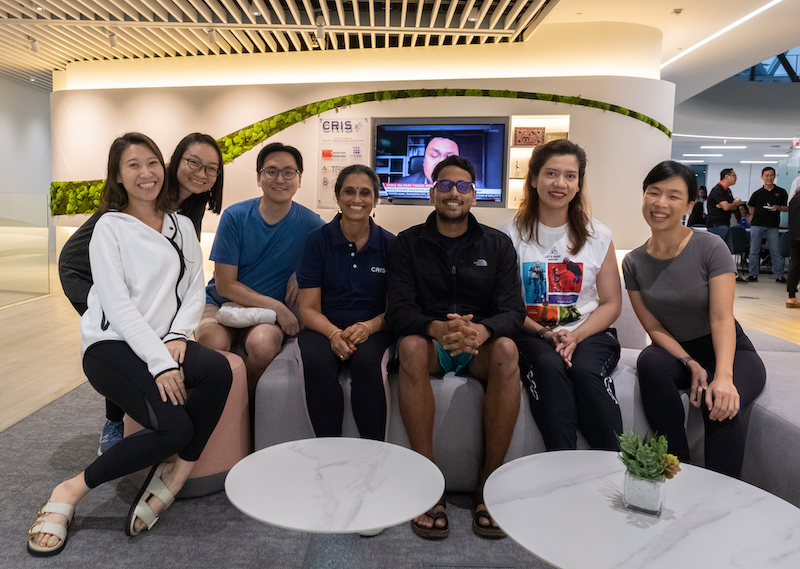
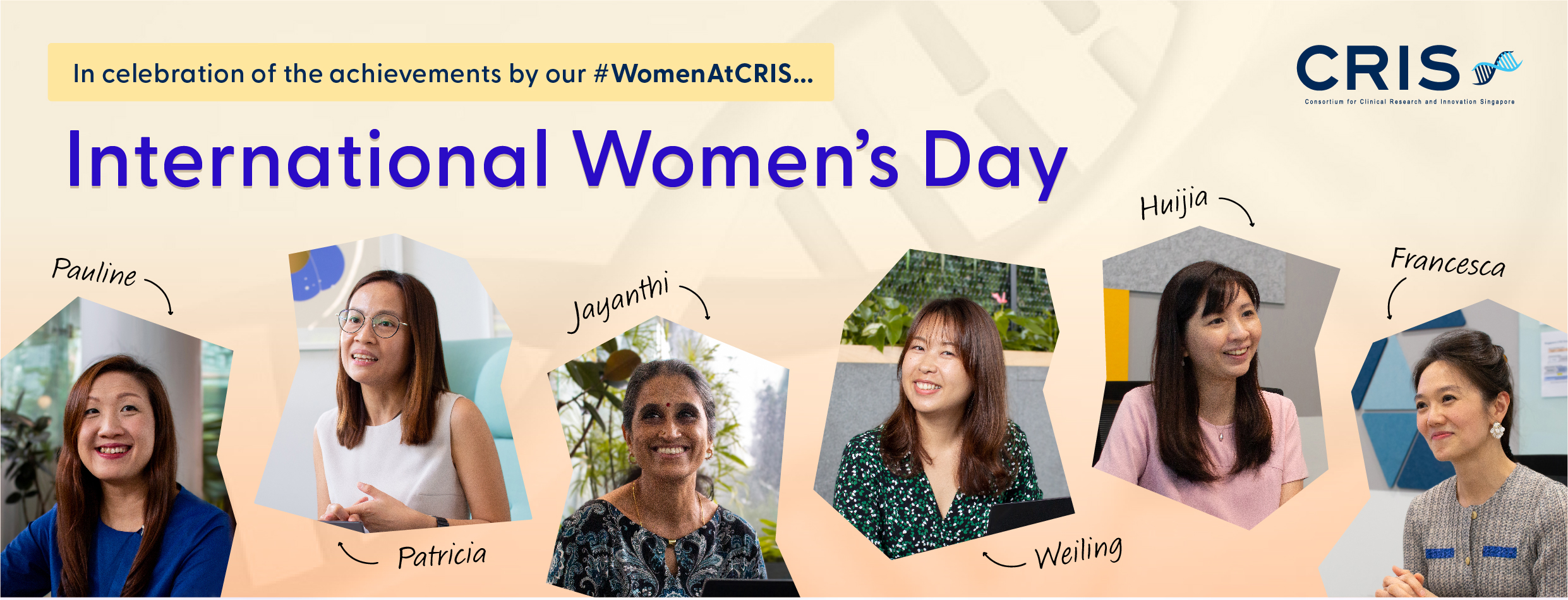
Click here to read more articles in this series.

